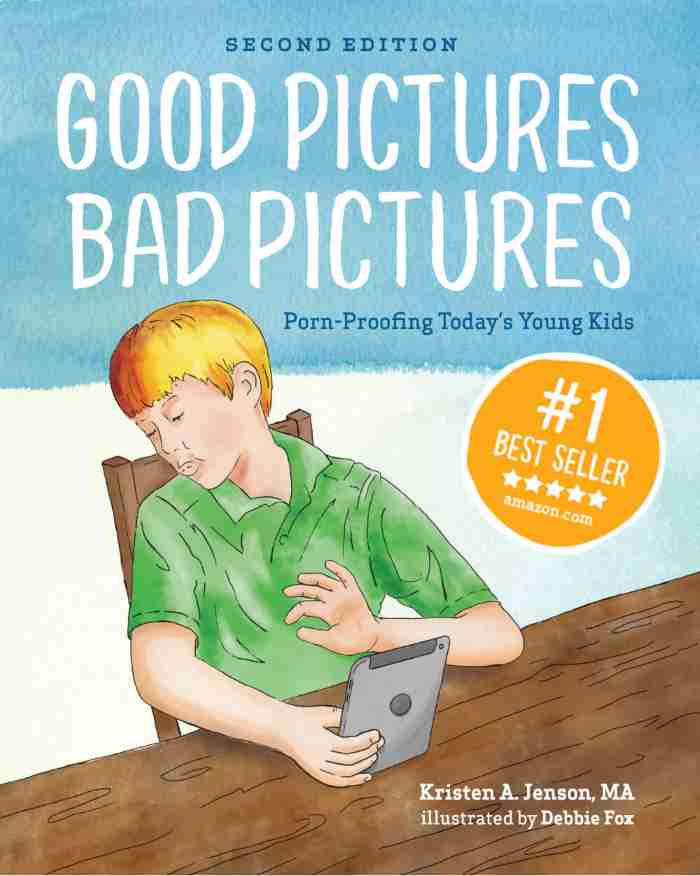.webp)
.webp)
New Video Series on Digital Overuse Solutions by Expert Pediatrician
Excessive use of digital media has been shown to cause several harms to individuals, including depression, anxiety, pornography exposure, and many others.
However, in our tech filled world, reigning in use of digital media can be a daunting task, especially for families.
.webp)
Recognizing this need, Dr. Justin Rowberry, a seasoned Developmental and Behavioral Pediatrician, has dedicated his expertise to helping families establish healthy relationships with digital technology. Through a series of enlightening videos called Great Tool, Horrible Master: Helping families establish healthy relationships with digital technology, Dr. Rowberry shares valuable insights and practical strategies to empower families in their digital journey.
Meet Dr. Justin Rowberry, developmental and behavioral pediatrician
Dr. Rowberry's passion lies in assisting families in developing habits that not only reduce anxious and depressive symptoms but also foster contentment and self-assurance.
He comes with a rich educational background that includes a medical degree from Yeshiva University and a pediatric residency at San Antonio Uniformed Services Health Education Consortium. Plus, his fellowship in developmental and behavioral pediatrics at Yale University further honed his expertise, making him a trusted authority in his field.
The harms of digital media overuse
In the first session of this enlightening video series, Dr. Rowberry delves into the detrimental effects of digital overuse. Packed with insightful information, viewers will gain a deeper understanding of how excessive screen time can impact:
- mood
- sleep patterns
- body image, and
- ADHD symptoms.
Drawing from real data and experimental studies, Dr. Rowberry sheds light on the correlation between digital media consumption and adverse behavioral and health outcomes. He discusses why digital media overuse increases symptoms, as well as how decreasing usage can be helpful. Watch it below.
You won’t want to miss the eye-opening and empowering information covered in the next four videos. Fill out the form below to receive the rest of the videos to your inbox. Be sure to confirm your subscription
Here’s a sneak peek at the rest of our FREE videos with Dr. Rowberry.
Session 2: How to set a good digital example
“Just because we’re adults doesn’t mean that we have healthy boundaries for our digital media use. It could be the most dangerous screen in the home is the one the parents are holding.”
How can our use of digital technology demonstrate healthy ways for our children to use their digital technology? Acknowledging that adults too can struggle with healthy digital boundaries, Dr. Rowberry offers practical tips on how parents can lead by example, including:
- How to set “freedom from technology times” as a family
- How to teach children to set their phones down and walk away
- How to model positive technology manners when you are around other people
- How setting restrictions on your own phone will benefit yourself AND your children
- How to use the phone for the great tool it is
- How to show electronic etiquette
Related: 5 Easy Tricks to Manage Screen Time and Get a Happier Family, Too
Session 3: The positive effects of decreased media use!
Reducing media consumption can yield a myriad of positive outcomes. Dr. Rowberry empowers families to prioritize quality time over screen time. He explores the benefits of decreased media use, including:
- Improved sleep
- Increased family time
- Increased social time
- Decreased exposure to pornography
- Decreased body image symptoms
- Decreased mood symptoms
[[CTA]]
Session 4: Top 7 recommendations to limit digital media overuse in the home
In the final session, Dr. Rowberry offers practical recommendations to curb digital overuse in the home. You’ll get answers to the following questions:
- How can I set boundaries?
- How can I make sure boundaries are training focused
- How can we set times of freedom from technology?
- Where and when should screens never be allowed?
- How can parents make free time on technology a privilege to be earned?
- How can children learn to restrict themselves?
- How can I know when my child is ready for social media?
Related: How To Cultivate a Healthy Mind: A Fun 7-Step Object Lesson
Bonus session: Pragmatic advice
Dr. Rowberry and Kristen Jenson engage in a bonus video discussion, offering pragmatic advice and real-life examples to implement in everyday family life. Get some practical ideas in this candid BONUS!
Transform your family’s digital habits
Join Dr. Justin Rowberry on a journey towards transforming digital habits into healthy ones. Explore the remaining sessions, free of charge.
You’ll be empowered to avoid the horrible pitfalls of digital overuse and embrace technology as a great and valuable tool!
.webp)


Good Pictures Bad Pictures
"I really like the no-shame approach the author takes. It's so much more than just 'don't watch or look at porn.' It gave my children a real understanding about the brain and its natural response to pornography, how it can affect you if you look at it, and how to be prepared when you do come across it (since, let's face it... it's gonna happen at some point)." -Amazon Review by D.O.
.webp)
.webp)




